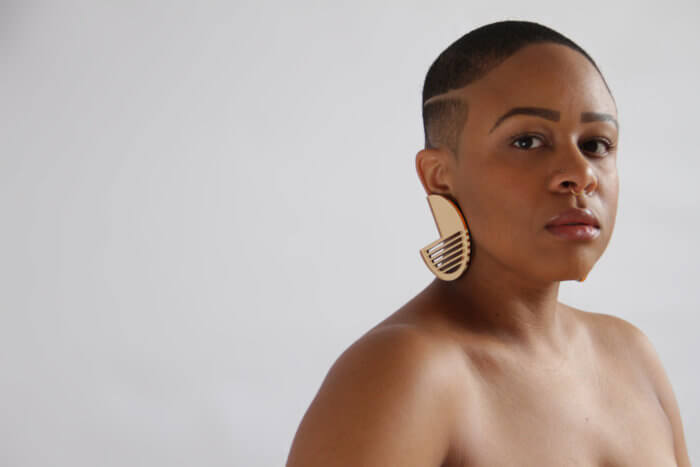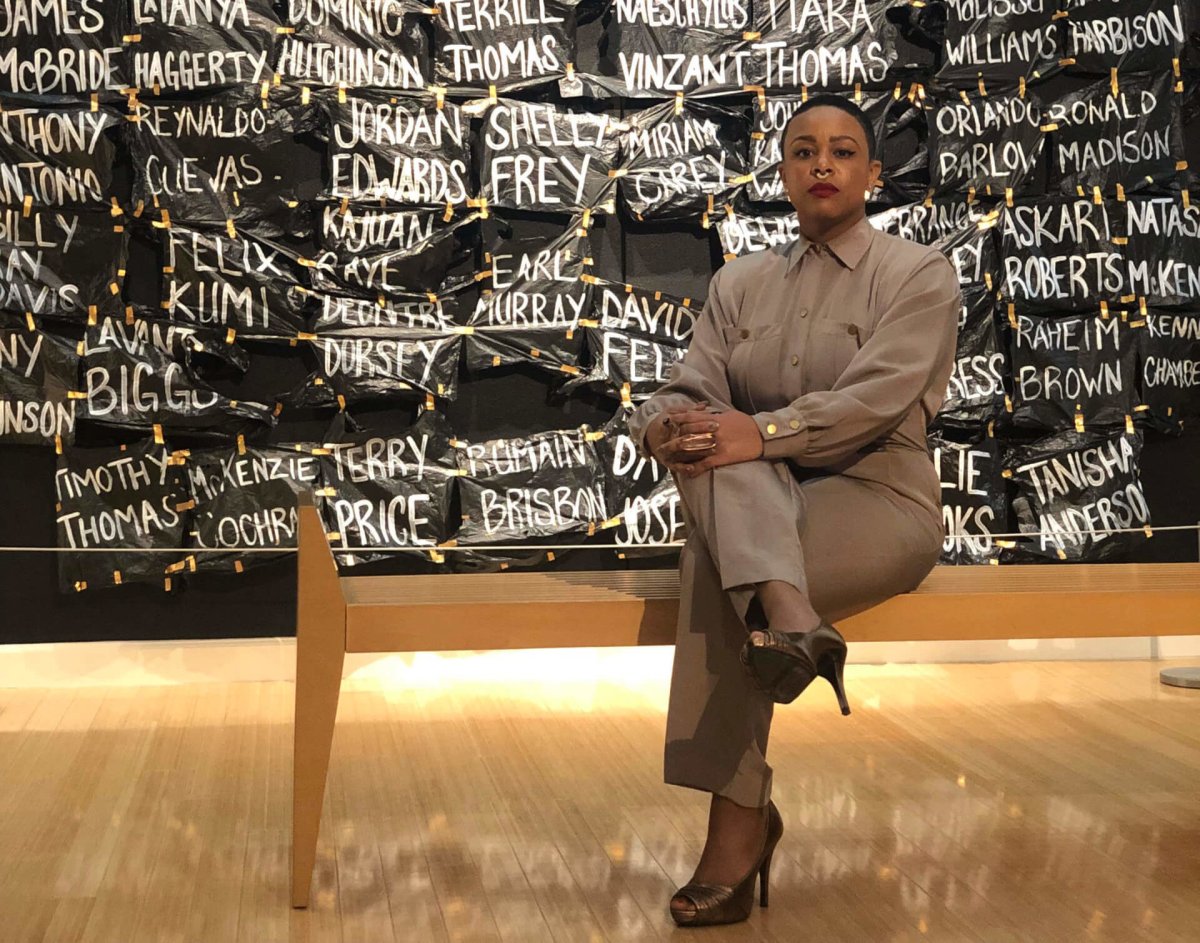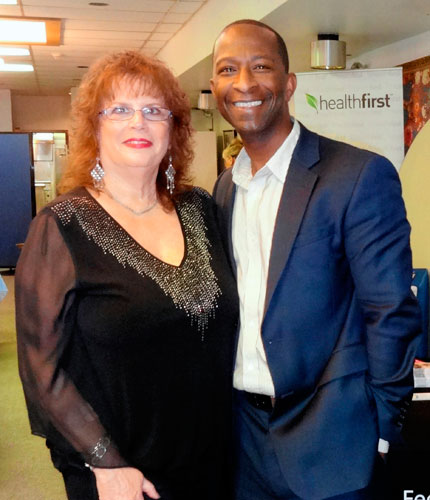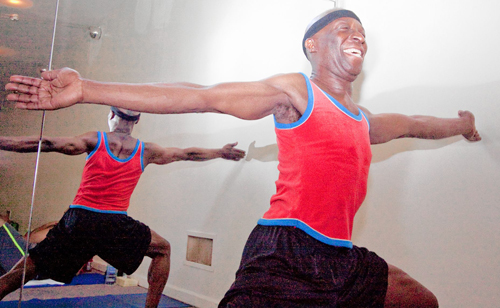This show is for everyone and their mother.
A Brooklynite launched a podcast in the midst of the coronavirus pandemic that focuses on another health crisis: maternal mortality and reproductive injustice in New York City, where Black women are eight to twelve times more likely than white women to die of childbirth-related causes.
Birth Justice NYC aims to broaden listeners’ understandings about reproductive justice by showing the full range of challenges that Black people face while giving birth and raising children in the Big Apple, according to its creator and host.
“People need to understand that birth justice is about more than just the moment of birth,” said Taja Lindley, who records the weekly show from her Crown Heights apartment. “What I’m hoping with the podcast is that we can zoom out and connect all of those dots. Maternal mortality is important, but it’s not the only part of this conversation.”
Through interviews with activists, scholars, and doulas, Lindley delves into some of the lesser-discussed past and present facets of reproductive oppression that most impact Black New Yorkers, including the history of how the city’s child welfare system criminalizes poor parents — a practice nicknamed “Jane Crow,” according to a 2017 New York Times report — and how local doulas have pivoted to helping people become parents during the pandemic.
Lindley, an interdisciplinary artist, honed her knowledge around reproductive justice through her studies at New York University, where she studied public policy and knowledge production with a focus on health and women of color, and through subsequent roles with the city Department of Health and Mental Hygiene, she said.
As a sexual and reproductive justice consultant with the health department, she helped facilitate a community process to establish the 2018 New York City Standards for Respectful Care at Birth, which provide information about people’s rights while giving birth. The following year, she collaborated with the department through the Public Artist in Residence program, managed by the city Department of Cultural Affairs, to research Black maternal mortality in the Bronx — an experience that ultimately birthed the podcast, she said.
Many of Lindley’s guests on Birth Justice NYC developed expertise from their own lived experiences of motherhood and medical racism, the host added.
“The people who come to this work usually have direct experiences with the issue that they’re dealing with,” Lindley said. “A lot of people do this work for their own survival and the survival of their communities.”
For Brooklynite Chanel Porchia Albert, the founder and chief operating officer of Ancient Song Doula Services, a Bedford-Stuyvesant-based reproductive health organization, it was her own experience of childbirth that shaped her mission to improve people’s birth experiences through her work as a doula, she notes on the podcast. Scholar activist Dr. Lynn Roberts — now an Associate Dean of Student Affairs and Alumni Relations and a tenured faculty member in the CUNY Graduate School of Public Health and Health Policy in Harlem — began her foray into public health after she was a subject of a research study about teen mothers, an experience she discusses in an episode about the city’s history of reproductive justice activism.
“The podcast centers the stories and experiences and expertise of people who are most impacted and people who are on the front lines working with the most impacted,” Lindley said.
“It’s not because of race, it’s because of racism”
In New York City, maternal mortality rates for Black women are four times the national average. In Brooklyn, pregnancy-related deaths have been particularly high in recent years.
From 2008 to 2012, Kings County was home to the city’s highest rates of life-threatening complications during delivery — known as severe maternal morbidity — the majority of which affected Black women. And from 2011 to 2015, the borough trailed the Bronx with the city’s second-highest pregnancy-related mortality rates. (The Department of Health and Mental Hygiene does not track deaths by both borough and race/ethnicity, because the numbers are too small to make stable estimates, according to deputy press secretary Pedro Frisneda, who added that the agency publishes reports on maternal mortality every five years, along with an annual report for City Hall, as required by local law.)

Since Lindley first launched the podcast in June, Birth Justice NYC has become only more relevant than its topics already were, due to a series of tragic events: in July, Sha-Asia Semple, a 26-year-old Black woman, died while giving birth to her daughter, Khloe, at Bedford-Stuyvesant’s Woodhull Medical Center. Semple died of cardiac arrest during an emergency caesarean section, according to a close friend, who added that Washington had a healthy pregnancy and no pre-existing conditions.
The young mother was at least the third Black person to die of childbirth-related complications this year. In March, Brooklynite Cordielle Street died days after giving birth to her daughter, apparently due to complications from her delivery. And just a month later, 26-year-old Amber Rose Isaac, a Bronx resident, died following an emergency C-section to give birth to her son, Elias, at the borough’s Montefiore Medical Center. Days earlier, Isaac had tweeted about her frustrations with her doctors; weeks before the birth, she researched Black maternal mortality rates and told her partner she didn’t think she’d survive the delivery, according to The City.
Lindley characterized the trio of events as products of systemic racism in the medical field, adding that maternal mortality is not a new problem and has only been made worse by the pandemic.
“When we talk about the racialized gap in different health outcomes, it’s not because of race, it’s because of racism. We need to grapple with racism inside of the healthcare industry,” she said. “It is a healthcare problem that has been exacerbated by a healthcare system that’s already been overloaded because of COVID — under-resourced, understaffed, and all the things that come with the pandemic.”
The host noted that while she does not disavow the medical field entirely, she believes its practices towards and relationships with Black patients must change. She uses Birth Justice NYC to amplify the voices of people who are generally silenced — or worse — by the healthcare system, she added.
“I come from a family of healthcare practitioners. I’m not here to demonize anyone, but we call it into question [on the podcast]. The institutions have to shift, the practitioners have to shift,” she said. “The whole point is to center, hear, and believe people, because they don’t necessarily always feel that inside of the healthcare system.”
Lindley is tentatively planning to launch the podcast’s second season early next year, pending both the pandemic and how the presidential election unfolds, she said. In the meantime, she is collecting stories from listeners about their own reproductive, parenting, and postpartum experiences to feature in future episodes, she added.























